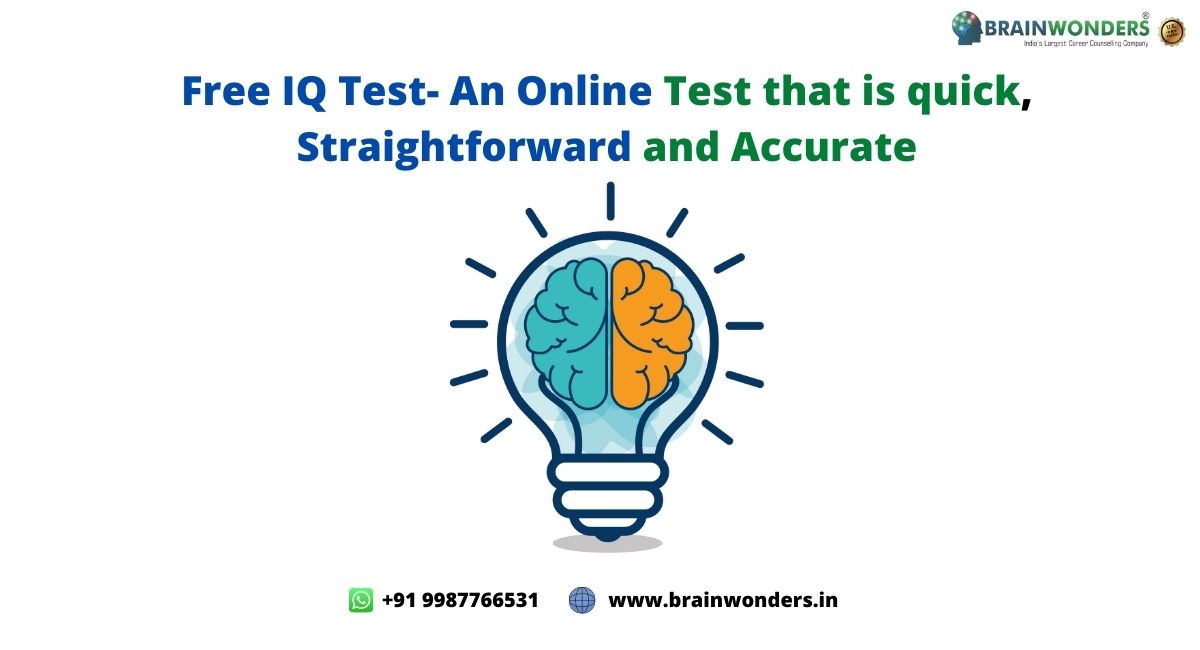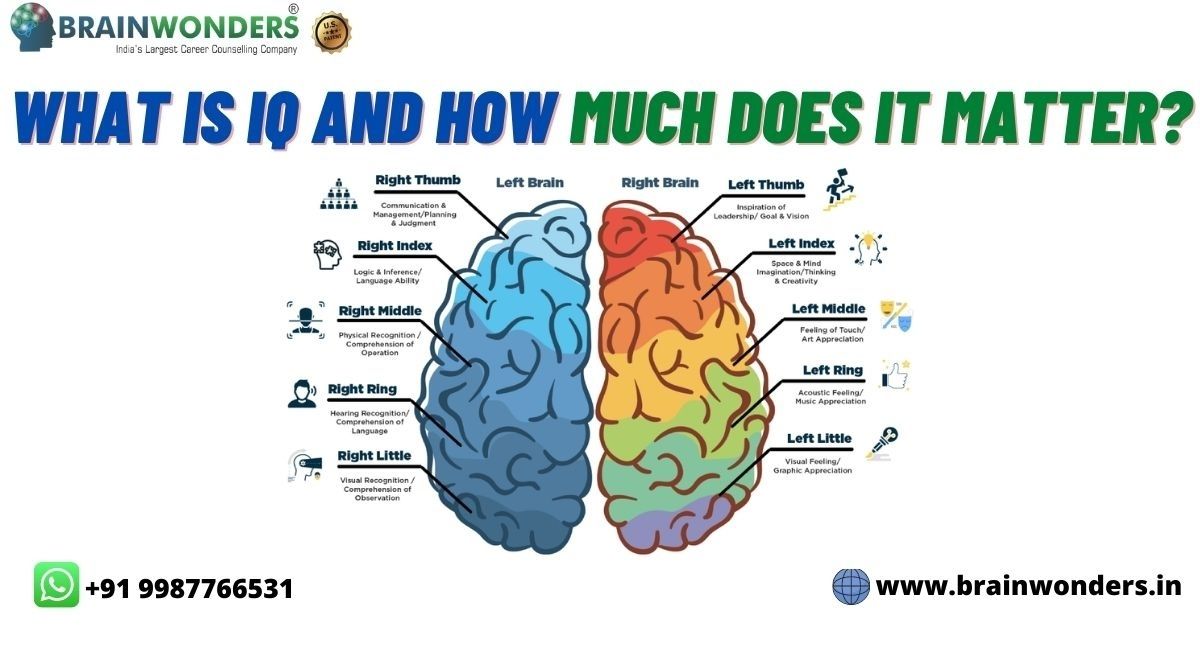

We have a database of over 11,000 colleges all over India.
Connect with us to find your perfect fit!
Blog
26 January,2023 | By Brainwonders

Intelligence is one of the oldest and most extensively researched topics in psychology. The development of evaluations to quantify this idea is crucial to the advancement of psychological science.
Human intelligence is often measured in psychology through IQ scores obtained through IQ testing. However, there are critics of IQ tests who, while not disputing the stability of IQ scores or the fact that they predict some types of performance rather well, say that basing a concept of intelligence only on IQ test scores ignores many crucial components of mental ability.
From Alfred Binet's earliest evaluations on French youngsters to the countless tests that have appeared and evolved since then, evaluating IQ or "intelligence quotient" has become a popular tool to estimate the intellectual potential and identify weaker areas that require support. However, IQ testing is controversial due to its failure to capture other human attributes such as character, motivation, creativity, and rational thinking skills. Furthermore, when children are assessed, non-intellectual characteristics such as weariness or hunger might cause results to be erroneous. Nonetheless, assessing components of a person's cognitive functioning has numerous advantages.

Teachers may expect obedience and good marks without realizing that gifted youngsters (those with a high IQ) who are placed in inappropriate learning contexts are not always high achievers. Anxiety and despair cause up to 20% of gifted youngsters to drop out of school. According to paediatrician Marianne Kuzujanakis, gifted children are sometimes not classified as gifted, and their sometimes-intense behaviours might mimic psychiatric problems, resulting in misdiagnosis and unneeded medication. Gifted students may require as much assistance as students with learning impairments.
Low scholastic accomplishment is not always due to a lack of intelligence. Learning difficulties can have an impact on academic progress and, if undetected, might make a youngster appear less capable of learning than he is. The National Institutes of Health estimates that 15% of Americans have a learning problem. Language disabilities such as dyslexia, arithmetic disabilities such as dyscalculia, and writing disabilities such as dysgraphia are examples of these, all of which harm academic attainment. Using intelligence testing to rule out a low IQ helps to restrict the search for the cause of poor school performance.
Recommended Read: What is IQ Test? The Complete Guide to IQ Tests - Brainwonders
Learning impaired students are sometimes gifted. The learning handicap and giftedness blend together to make the learner appear average. However, if the student's precise areas of weakness and strength are recognized through cognitive testing, she can be helped to realize her full potential. A student with a physical writing impairment, for example, can be given a keyboard or voice-to-text software instead of a pencil to assist her in transferring her ideas into written form for others to read. Without IQ testing, her exceptional ability may go unnoticed, and her physical impairment may be permitted to dictate her capabilities.
Human intelligence is continually improving, to the point where IQ tests are updated every decade or so to ensure that the average score remains at 100 points. According to data from the Wechsler scale, IQ increased by around 20 points during the twentieth century. Formal early education and growing complexity in topics such as arithmetic are acknowledged as significant aspects of human cognitive development. This data would not exist without systematic, standardized intelligence testing, and the impact of formal childhood education on average IQ would not be as well established.
Read More: 10 Surprising Things About Career Coaching as a Profession
Fill the form to know how!